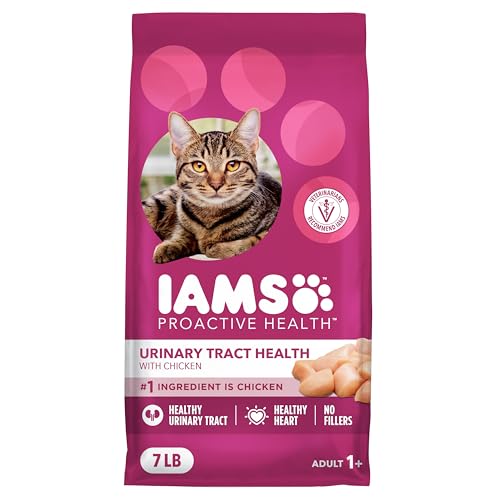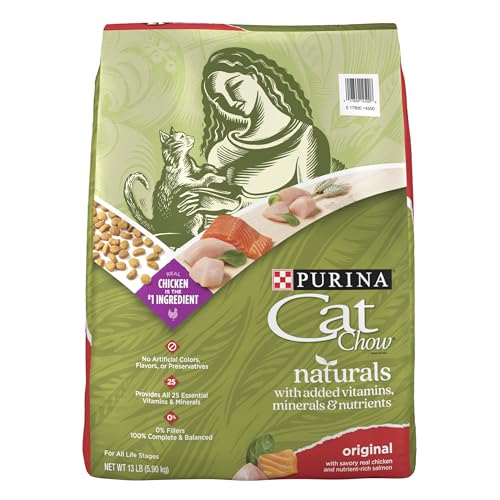The Importance of Cat Food
When it comes to caring for your feline friend, cat food is a crucial aspect that should not be overlooked. As a cat lover, enthusiast, and expert, you understand the significance of providing your cat with a balanced and nutritious diet.
Why is cat food so important?
- Nutritional needs: Cats have unique nutritional requirements that differ from other animals. They need high-quality protein sources, essential fatty acids like omega-3 and omega-6, and specific vitamins and minerals to maintain optimal health. Cat food is specially formulated to meet these needs.
- Health and wellbeing: Feeding your cat a proper diet plays a vital role in maintaining their overall health and wellbeing. A well-balanced cat food helps support their immune system, promotes healthy digestion, and contributes to shiny fur and strong bones.
- Weight management: Obesity is a common problem among cats, and it can lead to various health issues. Feeding your cat appropriate portions of cat food helps manage their weight and reduces the risk of obesity-related complications.
- Preventing deficiencies: Providing your cat with a complete and balanced diet ensures they receive all the necessary nutrients, helping prevent nutritional deficiencies that can negatively impact their health.
- Protein: Cats are obligate carnivores, meaning they require a diet high in animal-based protein. Look for cat food that lists a high-quality protein source as the primary ingredient, such as chicken, fish, or turkey.
- Limited fillers: Avoid cat food that contains excessive amounts of fillers like corn, wheat, or soy. These ingredients offer little nutritional value and can be difficult for cats to digest.
- Vitamins and minerals: Check if the cat food provides essential vitamins and minerals, such as vitamin A, vitamin D, calcium, and taurine. These nutrients are crucial for your cat’s overall health.
- Avoid artificial additives: Opt for cat food that is free from artificial flavors, colors, and preservatives. Natural ingredients are generally better for your cat’s overall health.
Pros of Leaving Dry Cat Food Out All Day
As a cat lover, you want to make sure your feline friend is well-fed and happy. One question that often comes up is whether it’s okay to leave dry cat food out all day. Let’s explore some of the pros of this practice:
1. Freedom and Independence: Leaving dry cat food out all day allows your cat to graze and eat whenever they feel hungry. This gives them the freedom to eat at their own pace and maintain their independence.
2. Convenience for You: Life can get busy, and having the convenience of leaving dry cat food out all day means you don’t have to worry about sticking to a strict feeding schedule. It’s especially helpful for cat owners who work long hours or have an unpredictable daily routine.
3. Preventing Hunger: Cats have small stomachs, and they prefer to eat small meals throughout the day. Leaving dry cat food out all day ensures that your kitty won’t go hungry and helps prevent them from begging or meowing for food.
4. Weight Management: Some cats tend to overeat when given large portions at specific meal times. By leaving dry cat food out all day, you can promote portion control and help prevent obesity in your cat.
5. Minimizing Stress: Cats can be sensitive creatures, and sudden changes in their routine can cause stress. Leaving dry cat food out all day provides a constant source of nourishment, which can be comforting for your cat and alleviate any anxiety or stress they may feel.
While there are pros to leaving dry cat food out all day, it’s important to remember that not all cats will benefit from this practice. Some cats may have specific dietary needs, while others may be prone to overeating. It’s always a good idea to consult with your veterinarian to determine what feeding method is best for your individual cat.
The next section will discuss the potential drawbacks of leaving dry cat food out all day, so keep reading to get a complete picture of the topic. Without a conclusion, the discussion will seamlessly continue, providing you with all the information you need to make an informed decision about your cat’s food habits.
Cons of Leaving Dry Cat Food Out All Day
While leaving dry cat food out all day may seem convenient, it’s important to consider the potential drawbacks. Here are a few reasons why this practice may not be ideal for your feline friend:
- Food spoilage: Leaving cat food out for long periods can lead to spoilage, especially in hot and humid weather. This can make your cat sick if they eat spoiled food.
- Decreased freshness: Constant exposure to air can cause dry cat food to lose its freshness and nutritional value over time. Cats may not enjoy eating stale food, which could lead to appetite loss or selective eating.
- Increased risk of pests: Leaving food out can attract unwanted visitors like insects and rodents. Not only can they contaminate the food, but they may also spread diseases to your cat.
- Portion control difficulties: Free-feeding can make it difficult to monitor your cat’s food intake. Some cats may overeat, leading to weight gain and potential health issues like obesity and diabetes.
- Loss of control over feeding habits: If you have multiple cats in your household, leaving food out all day can make it challenging to keep track of each cat’s individual feeding habits. This could result in one cat eating more than their fair share while the others are left hungry.
To ensure a healthy and balanced diet for your cat, it’s recommended to establish regular feeding times and portion control. Consulting with your veterinarian can help you determine the best feeding schedule and amount of food that suits your cat’s specific needs.
Remember, every cat is unique, and what works for one may not work for another. Pay attention to your cat’s behavior, appetite, and overall health when determining the best approach to feeding.
Finding a Balance
When it comes to leaving dry cat food out all day, finding a balance is key. As a cat lover, you want to make sure your furry friend has access to food whenever they need it, but you also want to ensure their health and well-being. Here are some tips to help you strike that balance:
- Monitor their intake: Leaving food out all day can make it difficult to keep track of how much your cat is eating. It’s important to monitor their food intake to prevent obesity and other health issues. Keep an eye on their portion sizes and adjust accordingly.
- Establish a schedule: Cats thrive on routine, so it’s beneficial to establish regular feeding times. This allows you to provide fresh food at specific intervals, ensuring your cat gets the nutrients they need. Plus, it helps prevent food spoilage and maintains the freshness of their food.
- Consider meal-feeding: Instead of leaving food out all day, you can try meal-feeding. This involves providing your cat with specific meals at designated times. It promotes healthier eating habits, prevents overeating, and gives you better control over their diet.
- Consult with your veterinarian: Every cat is unique, so it’s always a good idea to consult with your veterinarian to determine the best feeding approach for your cat. They can provide guidance tailored to your cat’s specific needs and help you find the balance between convenience and optimal nutrition.
Remember, finding a balance means considering your cat’s health and well-being while also providing them with the convenience of access to food. By monitoring their intake, establishing a schedule, considering meal-feeding, and consulting with your veterinarian, you can ensure a happy and healthy feline companion.
For more information on cat nutrition and feeding practices, continue reading our article. Don’t forget to consult with your veterinarian for personalized advice and recommendations.
No conclusion paragraph.
Conclusion
Finding the right balance when it comes to leaving dry cat food out all day is essential for your furry friend’s health and well-being. By monitoring their food intake, establishing a feeding schedule, considering meal-feeding, and consulting with a veterinarian, you can ensure that your cat is getting the nutrition they need while still enjoying the convenience of having food available.
Remember, it’s important to consider your cat’s individual needs and health conditions when deciding on their feeding routine. Consulting with a veterinarian will provide personalized advice and guidance based on your cat’s specific requirements.
Leaving dry cat food out all day can be okay as long as you take the necessary steps to maintain a healthy balance. By considering your cat’s health and well-being, you can provide them with the convenience and access to food they need while ensuring they receive the proper nutrition. For more information on cat nutrition and feeding practices, continue reading and consult with a veterinarian for personalized advice.
Frequently Asked Questions
1. Is it okay to leave dry cat food out all day?
Leaving dry cat food out all day can lead to overeating and obesity in cats. It’s important to find a balance by monitoring your cat’s food intake and establishing a feeding schedule.
2. How can I strike a balance between leaving food out and maintaining portion control?
To strike a balance, consider meal-feeding your cat by offering specific portions of dry cat food at designated times throughout the day. This helps to control portion sizes and prevent overeating.
3. Should I consult with a veterinarian about my cat’s feeding habits?
Yes, consulting with a veterinarian is recommended to ensure that your cat’s nutritional needs are being met and to receive personalized advice based on their health and individual circumstances.
4. What are the potential risks of leaving dry cat food out all day?
Leaving dry cat food out all day can lead to overeating, weight gain, and potential health issues such as diabetes and urinary tract problems. It’s important to consider your cat’s health and well-being when deciding on a feeding routine.
5. Where can I find more information on cat nutrition and feeding practices?
For more information on cat nutrition and feeding practices, continue reading the full article. Additionally, consulting with a veterinarian will provide tailored guidance based on your cat’s specific needs.

















